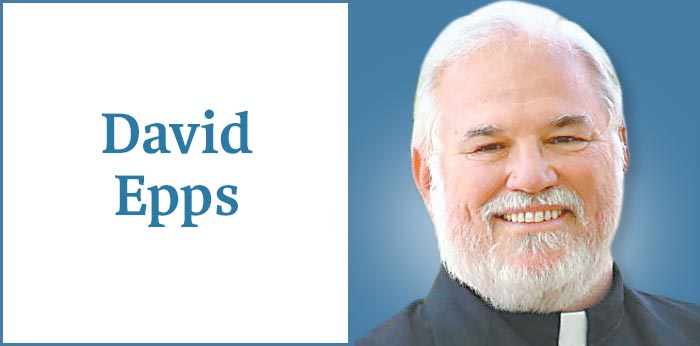“A life without friends means death without company.” — Basque proverb.
I came across the above proverb in a Walt Longmire mystery novel entitled, “Death Without Company,” by Craig Johnson. It brought to mind a funeral almost two decades ago. There was a woman of my acquaintance who, it seemed to me, had very few, if any friends. Most of the people she socialized with were relatives and a couple of neighbors. When I once questioned her about this she indicated that she had all the friends she needed.
As she got older, her circle of friends shrunk. The friend across the street, who was much older than her, died. A few years later, the other neighbor, who was closer in age to her, died also. Much later her husband died as well. Over the years, she lamented that, “When I die, there will be no one at my funeral.” I assured her that was not so and said that, if I was still around, I’d be certain to be there. A few years later, she died. I was asked to do her funeral.
When the day came, she was proved wrong. There were quite a number of people at the funeral. But, prior to and during the service, as I looked around I realized that she had not one friend among the assembled congregation.
Her husband came from a rather large family and most of his relatives showed up. Her children, their spouses, and their children were all there. One of the children attended a church and a number of people from that church, none of whom knew the deceased, came to the funeral to be in support of this person during their time of loss. There were friends of the other child who were in attendance for the same reasons.
It was sad to realize that if the relatives and the friends of relatives had not attended, there would be no one present except the minister and the funeral home staff. Not one. So, in a real sense, she was correct. And it was her own fault.
Over the years, I have officiated at many, many funerals. Almost without exception, the attendance of the funerals of those who were active church members was significant. Those who had been active in community organizations, civic clubs, special interest groups … all were well attended. Those who were active in their neighborhoods or charities or those who simply sought to make and keep friends, these funerals, too, were well attended. People gathered to celebrate a life and to mourn a friend who was gone from sight.
But I have also served at other funerals, often when a funeral director called upon me because the family had no church. Sometimes — not always — attendance at these were sparse. There were times at the graveside when those in attendance were three or four relatives and myself. Those moments felt sad, lonely, even lost. Again, most often, it’s their own fault.
It’s one thing to live two centuries ago in the western plains or the eastern mountains far from society and miles and miles from human contact. Such is not normally the case now. Now we are surrounded by houses or apartments, there is a church almost within walking distance (certainly within a short drive) from nearly everyone, opportunities for service, friendship, and social contact abound.
People who want to have friends, and are willing to show themselves open to friendship, will find what they are looking for. Others, including the lady mentioned earlier, lament the lack of friends but make no effort to have them. For these people, the Basque proverb often becomes a fact.
When they die, they die alone, unmissed, unmourned, and unacknowledged — except by a few relatives, if there are any left. They experience a “death without company.”
Certainly, if we know people like this, we have a responsibility to reach out and be that friend that they need — even if they think they need no friends. However, people without friends have their own responsibilities, too. Another proverb, A Jewish one, says, “A man who has friends must himself be friendly …” In almost every case, there is no need to die without company.
[David Epps is the pastor of the Cathedral of Christ the King, 4881 Hwy. 34 E., Sharpsburg, GA between Newnan and Peachtree City (www.ctk.life). He is the bishop of the Charismatic Episcopal Diocese of the Mid-South which consists of Georgia and Tennessee and the Associate Endorser for the Department of the Armed Forces, U. S. Military Chaplains, ICCEC. He may contacted at [email protected].]













Leave a Comment
You must be logged in to post a comment.